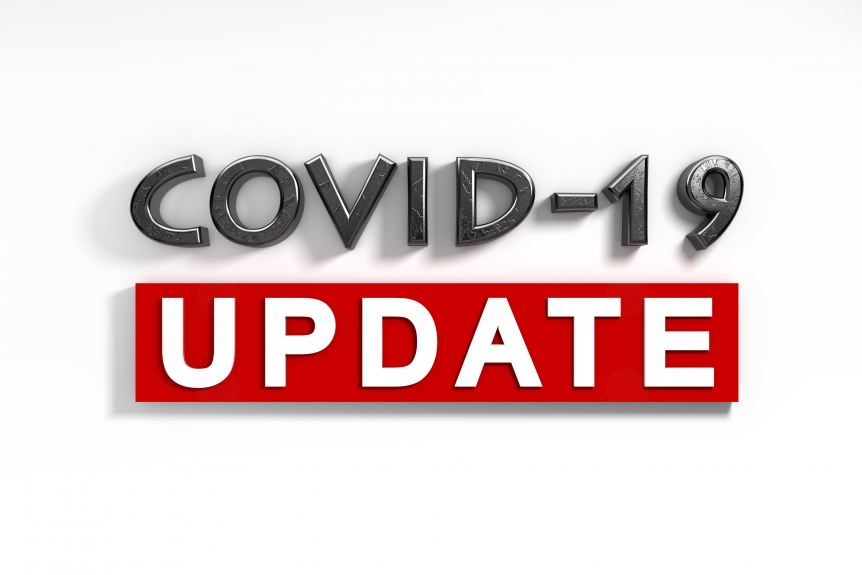By Hannah Lopez, MBA, SHRM-CP, Human Resource Consultant Not sure what to do if an employee tests positive for COVID-19? Click to hear Hannah’s outline of the procedure. Contact Hannah for more information at 717.205.5117 or email her.
Families First Coronavirus Response Act – HR Compliance
We’ve all heard about the Families First Coronavirus Response Act (FFCRA), but what does it entail? Highlights are below, but more information is available by clicking the links below. Highlights: Coronavirus relief legislation requires employers with fewer than 500 employees to provide 12 weeks of FMLA leave for child care reasons related to COVID-19. The new FMLA leave must be compensated after the first 10 days, at two-thirds of an employee’s wage, up to $200 per day. Employers must also provide 80 hours of paid sick time for specified reasons related to COVID-19. New Coronavirus Relief Law Requires Paid Employee Leave 3.27.20 More information can be found on the Department of Labor (DOL) FAQs page. Click here for the Department …
Families First Coronavirus Response Act Guidance and Forms
The Department of Labor (DOL) continues to update the questions and answers page regarding the Families First Coronavirus Response Act. New items of interest include: More detailed guidance on qualifications for small business exemption to FFCRA leave requirements Further details on definition of “individual” and “child” for purposes of employee taking emergency paid sick leave to care for another person If you haven’t posted the FFCRA notice, find it here. The PDF can be distributed by email or mail to employees who are working remotely. Questions can be addressed to your Murray Health Benefits representative or call us at 717.397.9600.
Family First Coronavirus Response Act Updates
By Hannah Lopez, MBA, SHRM-CP, Human Resources Consultant, Murray On March 18, 2020, President Trump signed the Family First Coronavirus Response Act (FFCRA). This Act provides two buckets of emergency leave – Emergency Family and Medical Leave Expansion Act (EFMLEA) and Emergency Paid Sick Leave Act (EPSLA) – for workers in relation to the COVID-19 pandemic. When details were first released regarding these two types of leave, there were many unanswered questions with very little guidance. Recently, the Department of Labor (DOL) has provided guidance on these frequently asked questions relating to this new law. To read the updates >>> If you have questions, contact Hannah at 717.205.5117 or email her.
Successfully Managing Employees Through the Employee Life Cycle
If you are an employer, human resource professional or anyone interested in a fresh approach to successfully managing employees from recruitment on, you won’t want to miss this presentation by Christine Nentwig, Esq. of CGA Law Firm and Hannah Lopez, MBA, SHRM-CP of Murray. Click To Register
ACA Form 1095 Deadline Extended
According to BASIC HR Compliance & Technology, the IRS has extended the due date for certain 2018 information-reporting requirements for insurers, self-insuring employers, and certain other providers of minimum essential coverage under section 6055 of the Internal Revenue Code and for applicable large employers under section 6056 of the Code. Read more here.
Are You Compliant?
The federal government revised a number of required employment laws and regulations, e.g. Family and Medical Leave Act (FMLA), Occupational Safety and Health Administration (OSHA), Fair Labor Standards Act (FLSA) and Equal Employment Opportunity Commission (EEOC). If you haven’t yet done so, it’s time to update your federal and state employment law postings. Physical and relevant employment law posters are required in order to meet state and federal posting requirements. Employers must post these notices in a common area that will be frequented by all employees, which depending on your location, may be a lunch room, break room, conference room, or kitchen, near a time clock or any location employees frequent daily. Did you know Pennsylvania requires employers must fill …
Pennsylvania Proposes Big Changes to State Law White-Collar Overtime Exemptions
This article is by Adam R. Long, McNees Wallace & Nurick, LLC Back in January, Governor Wolf announced that the Pennsylvania Department of Labor and Industry (DLI) would propose new regulations under the Pennsylvania Minimum Wage Act (PMWA) that would increase the minimum salary requirement for the white-collar overtime exemptions under this law. The PMWA is the state-law equivalent of the federal Fair Labor Standards Act (FLSA). The PMWA and FLSA both place minimum wage and overtime pay obligations for Pennsylvania employers. While the laws’ requirements are similar, they are not identical. Employers in Pennsylvania must meet the requirements of both laws to ensure compliance. In areas where one law is more favorable to employees than the other, Pennsylvania employers must …
Medical Marijuana and Workers’ Compensation in Pennsylvania
The Pennsylvania Medical Marijuana Act was signed by Governor Wolf on April 17, 2016, leaving employers with more questions than answers about employee use of medical marijuana. Key points of the Act note that those who are prescribed medical marijuana must have one of 17 designated “serious medical conditions” as diagnosed by a Department of Health (DOH) registered physician. First, the patient must obtain a certificate from a DOH-registered physician. They then receive an ID card from the DOH, and their name is placed in the state database. The patient is then able to get medical marijuana from a designated dispensary in their area. There are several forms of medical marijuana for patient use. These includes pill, oil, tincture or …
Employment Law: Doing Business Across State Lines in 2018
By Eric Athey, McNees Wallace & Nurick, LLC Keeping up with compliance requirements under Pennsylvania and federal laws can be challenging enough; however, for Pennsylvania employers that do business in multiple states, the compliance burden can grow exponentially. It is expected that we will see little new federal employment legislation over the next few years. However, the lack of legislative activity in Washington may prompt some state legislatures to place a greater emphasis on employment issues than usual. It already appears that 2018 will yield a bumper crop of new state employment laws across the nation. What you need to know >>>










